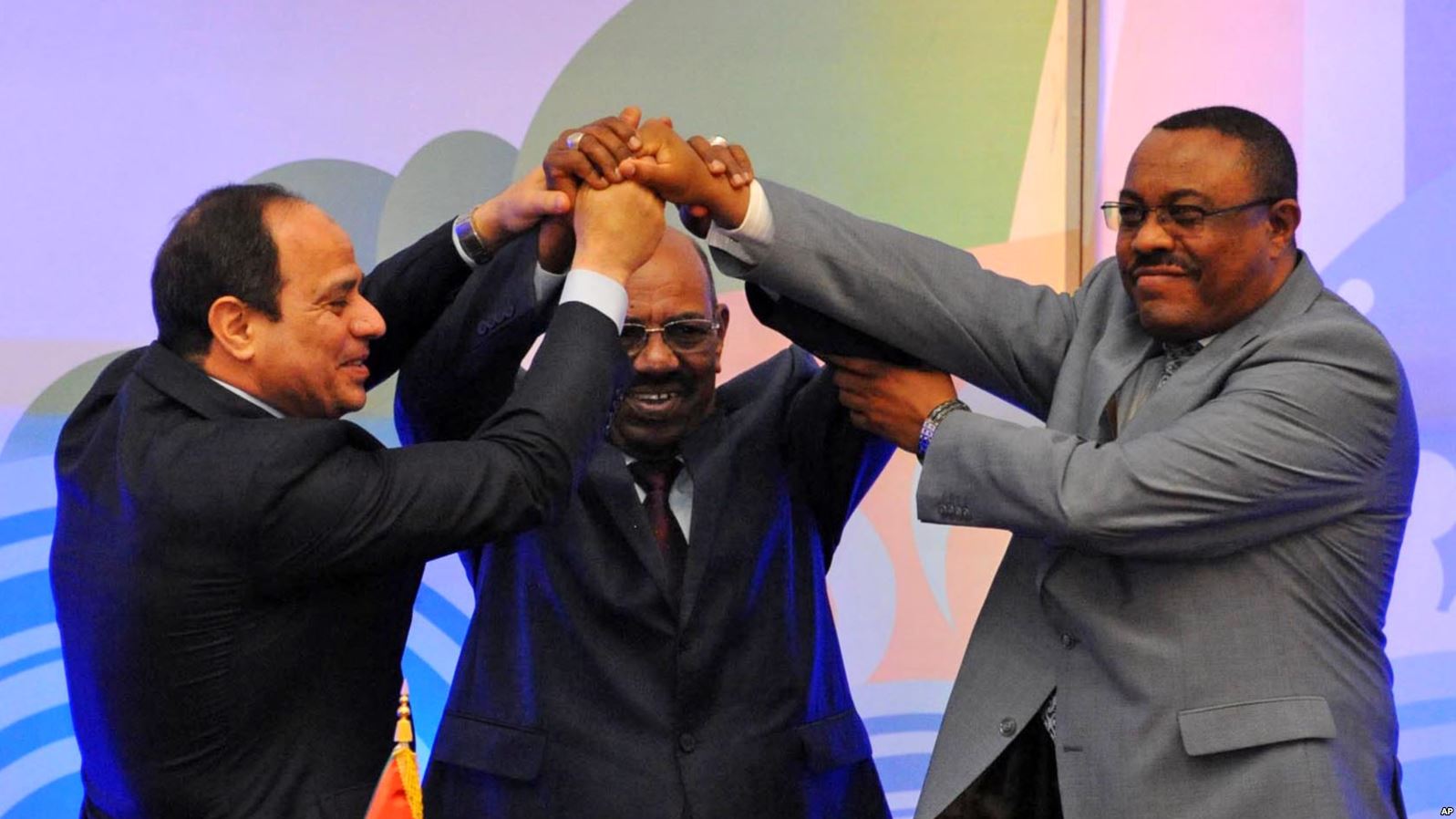
The problem of the Grand Ethiopian Renaissance Dam has been shadowing Egyptian-Sudanese-Ethiopian relations since 2011. However, on Monday, after a tripartite meeting between the countries as part of the African Summit in Addis Ababa, President Abdel Fattah al-Sisi declared there was “no crisis when it came to GERD”. The three countries seem to finally have reached a framework to solve the issue.
In a press conference held by Sisi in the wake of the tripartite meeting he declared, “be very reassured… we [the three countries] have met and no one will be harmed.”
Sisi continued to stress the importance of cooperation, saying, “the three countries are cooperating as one to protect our interest.”
Foreign Minister Sameh Shoukry announced in a press conference that during the tripartite meeting Egypt and Ethiopia agreed to finish the technical studies for GERD within just one month, adding that there has been no agreement on who will be conducting the studies yet. A meeting will be held between the ministers of irrigation and foreign affairs of the three countries and the National Tripartite Commission to take a decision on the matter. The final reports will be published within one month after that, which will include solutions to all technical issues. The countries also agreed they will be exchanging findings that the studies produce.
The decision comes based on the agreement the three countries called the Declaration of Principles, which was signed in Khartoum in 2015. The countries also agreed on the no-harm principle when it comes to the three countries’ interests.
Egyptian state media channels reported that Sisi met with Sudanese President Omar Al-Bashir and Ethiopian Prime Minister Hailemariam Desalegn. However, negotiations did not only include the GERD but were extended to include the general framework when it came to the relationship between the three countries.
Sisi and Bashir have previously signed a framework agreement dealing with the countries’ water rights after Ethiopia decided to build the GERD, seen by Egypt and Sudan as a threat to their water supply from the Nile. The meeting also addressed common concerns, including terrorism and security issues, especially in South Sudan, the Central African Republic and the Horn of Africa.
Egyptian presidency spokesperson Bassam Rady also declared that the three parties have agreed to activate a joint fund between the countries to finance infrastructure projects, reported Egypt Today.
The meeting is considered a breakthrough as it comes in the wake of months of negotiation deadlock due to the disagreement of the wording of a study on the dam’s environmental impact and each country’s access to the Nile River’s water. In December, Egypt proposed that the World Bank be allowed to help settle the dispute, but Ethiopia rejected the proposal.
Another breakthrough occurred just three days ago when Egyptian Foreign Minister Sameh Shoukry declared that the Sudanese ambassador would return to Egypt “very soon.”
On January 4, Sudan summoned its ambassador “for consultation”, reported Reuters, amidst deepening tension between Egypt and Sudan since Sudan announced its support for the GERD.
A bone of contention for both Ethiopia and Egypt has been the speed at which the dam’s reservoir would be filled.
The Grand Ethiopian Renaissance Dam – now over 60 percent complete and which will churn out 6,000 MW upon completion – is a centerpiece to Ethiopia’s ambitious power exporting plans.



